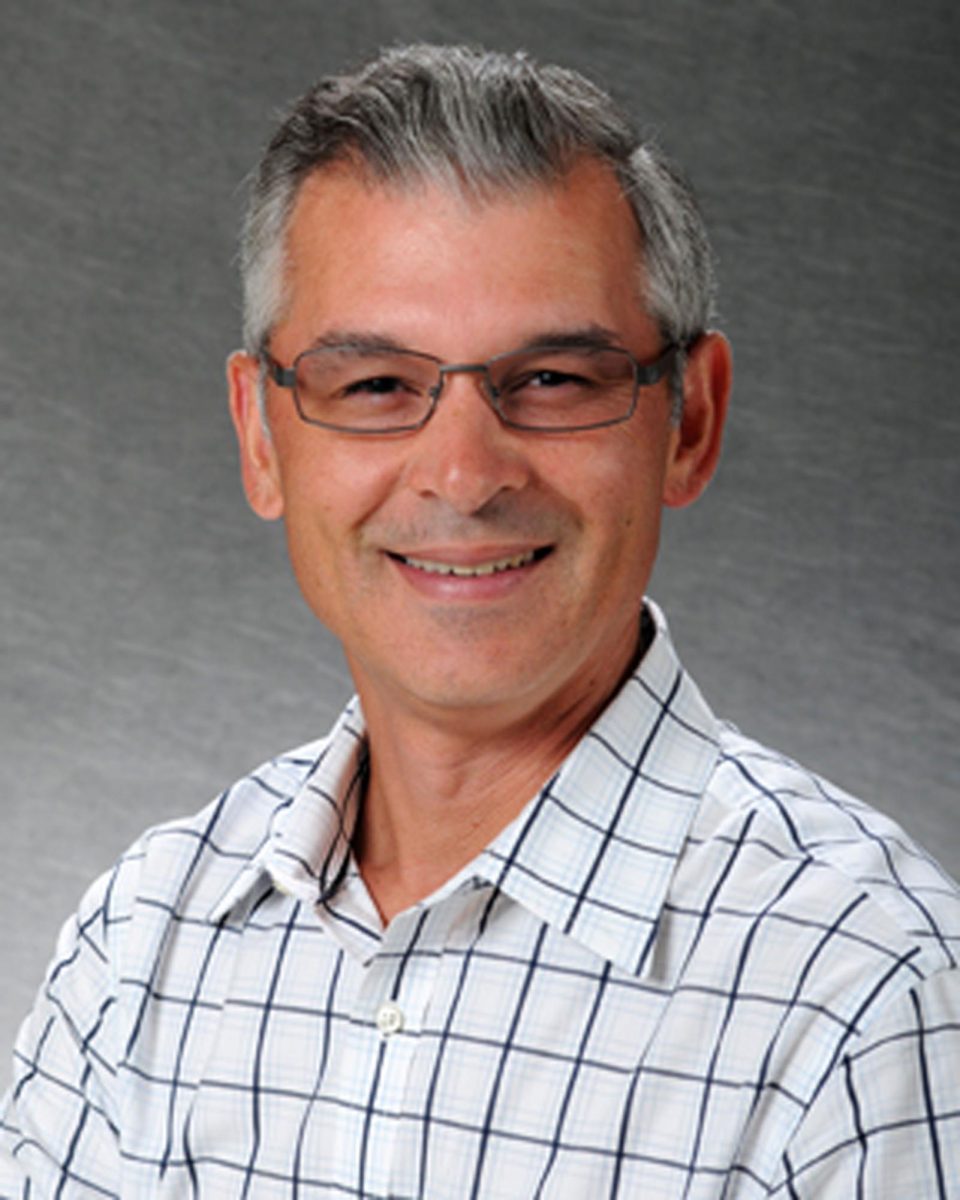A professor in the Milken Institute School of Public Health found that a social media campaign reduced hesitancy toward COVID-19 vaccines and increased vaccination rates in Nigeria.
Doug Evans, the study’s lead author, said researchers studied the effectiveness of two social media campaigns on Facebook and Instagram to promote COVID vaccinations launched in 2022 and found that vaccination rates among the study’s participants increased by roughly 6% and 9% after the first and second campaigns, respectively. He said officials can use social media campaigns like the ones in his study — in which trusted community figures promoted vaccinations as a social norm — in other countries to appeal to local audiences and boost vaccination rates.
“We have kind of a confirmation of our theory that if you get people to think differently about how normal it is to get vaccinated, they’re more likely to get vaccinated later,” Evans said.
Evans said local Nigerian organizations delivered the first campaign in January and February of 2022, which focused on normalizing COVID vaccination by having community members post personal testimonies, depictions of the benefits of vaccination and explain the “costs” of not being vaccinated. He said the second campaign, which ran May to September 2022, used a social influencer model, where influential people in Nigeria like local celebrities, religious leaders and health care providers promoted COVID vaccinations.
“There needs to be considerable thought given to what kinds of content people are used to consuming and how to present it,” Evans said.
He said researchers recorded participants’ information and followed up with respondents to measure how their responses changed over time. He said researchers sampled participants in regions where people likely saw the campaign and in regions where researchers did not deliver the campaign as a control, which allowed the researchers to determine how the campaigns affected vaccination rates and social norms about vaccination.
After the first campaign, the number of vaccinated study participants in states that likely saw the campaign was 31.7 percent, compared to 25.3 in control states. The second campaign resulted in 44.1 percent of vaccinated participants in states where researchers delivered the campaign and 35 percent in control states.
He said each campaign had to be “culturally relevant” because of Nigeria’s diversity. The researchers accounted for the fact that northern Nigeria is predominantly Muslim while southern Nigeria is largely Christian by customizing posts based on cultural differences — including different recognizable figures with varying styles of dress — to be more familiar to each local audience.
Evans said researchers used Virtual Lab — a software that simulates a lab environment — to recruit more than 1,000 participants from all 37 Nigerian states, including the six states where researchers delivered the campaign, to the study via social media. He said researchers used a chatbot to send survey questions to participants on Facebook Messenger and that the chatbot asked participants a series of questions about their COVID vaccination status, like if they were vaccinated and if they received one or two shots.
He said researchers began the social media campaign in December 2021, when Nigeria received an “influx” of COVID vaccines from Europe. That same month, more than one million vaccines in Nigeria expired without being used. Nigeria has the largest number of cumulative COVID cases in West Africa since 2020, according to data from Johns Hopkins University.
He said researchers began the first campaign with the hopes of building enough demand for the vaccines among Nigerian people to meet the provided supply. He encouraged other researchers to use the benefits of vaccination and detriments of remaining unvaccinated when deploying vaccination campaigns because it was effective in increasing vaccination rates among the study’s participants.
Experts in infectious diseases and public health said social media campaigns promoting vaccination are necessary to counter rising anti-vaccine misinformation. The experts said public health officials should use social media more to promote vaccination and other public health initiatives because the information would reach a wider audience.
Thomas Russo, a distinguished professor at the State University of New York and the chief of the Department of Infectious Diseases at the University at Buffalo, said social media is effective in communicating vaccine information to younger individuals who are “undervaccinated” and heavily use social media. He said the campaign’s use of trusted individuals in the community was an excellent strategy because researchers have proved that it has been successful in the past.
Russo said social media campaigns to promote vaccination are “extraordinarily important” to counter efforts to spread misinformation about COVID vaccinations for political gain. He said public health officials don’t use social media enough to communicate facts in public health compared to producers of anti-vaccine content, which is a “very well-organized, financed machine.”
“We need a similar organized effort in medicine and in public health and other venues to disseminate accurate facts or truth,” Russo said. “Social media is one important means of doing this. And, frankly speaking, the approach has been underutilized. It’s been fragmented. It’s not organized. It’s not financed.”
Richard Carpiano, a professor of public policy at the University of California, Riverside, said trust is a driving factor for international increases in vaccination rates and that the campaign’s use of trusted local figures to promote vaccination has “universal value” that other public health campaigns can recreate.
He said public health officials should use social media campaigns more to promote other vaccinations and screenings, like tests for sexually transmitted infections and colonoscopies, to reach a wider audience.
“We have to be considering increasingly more about these types of social media campaigns and how they might be very different from the traditional sorts of media campaigns that the public health agencies have been doing for so long,” Carpiano said.





